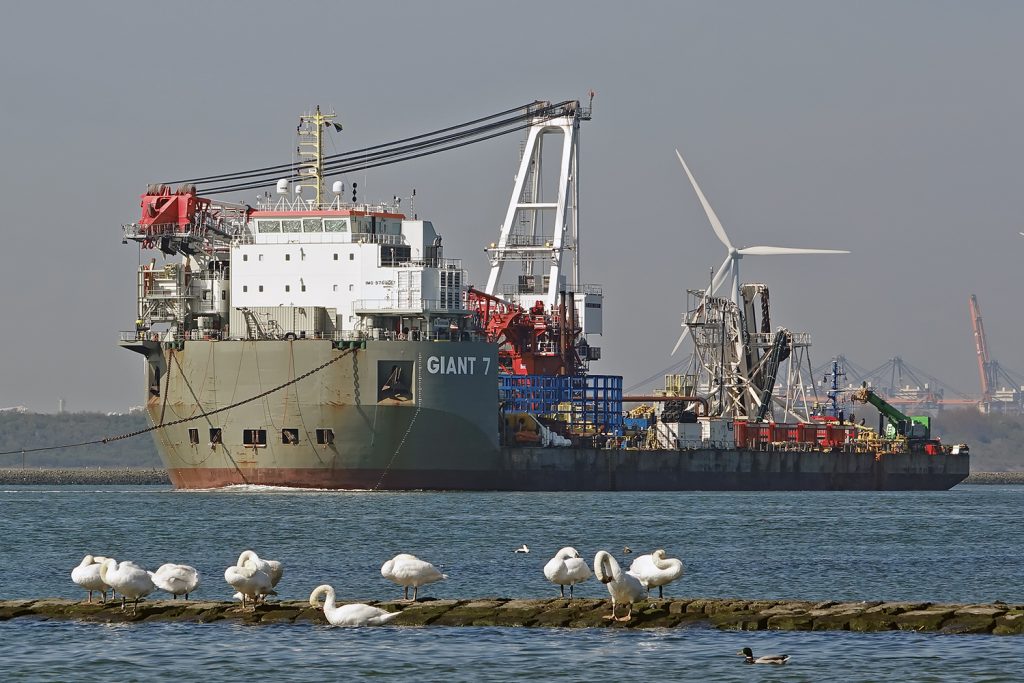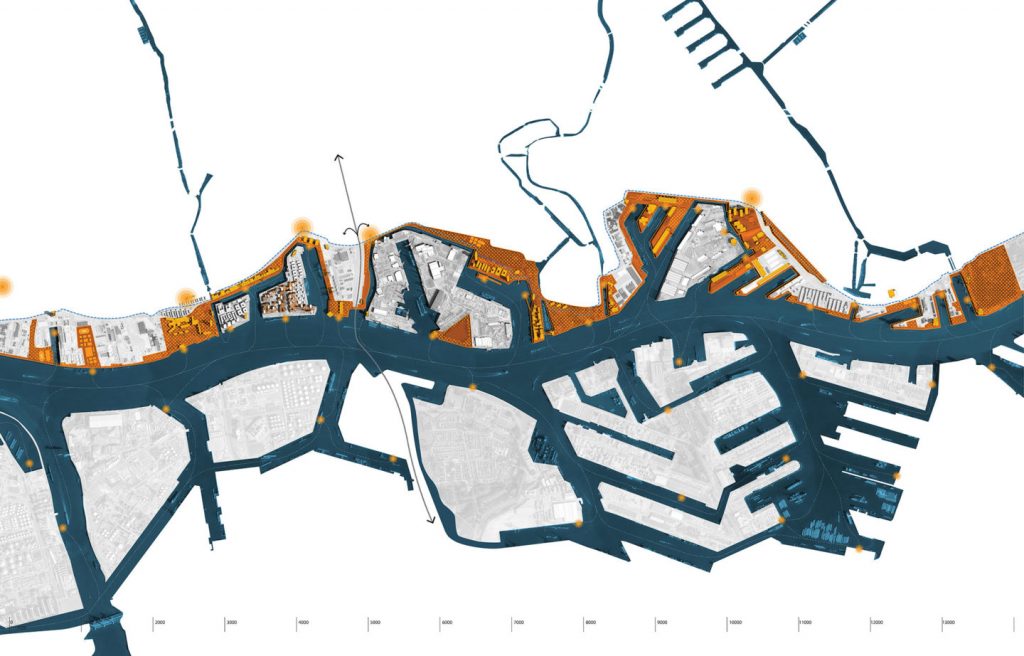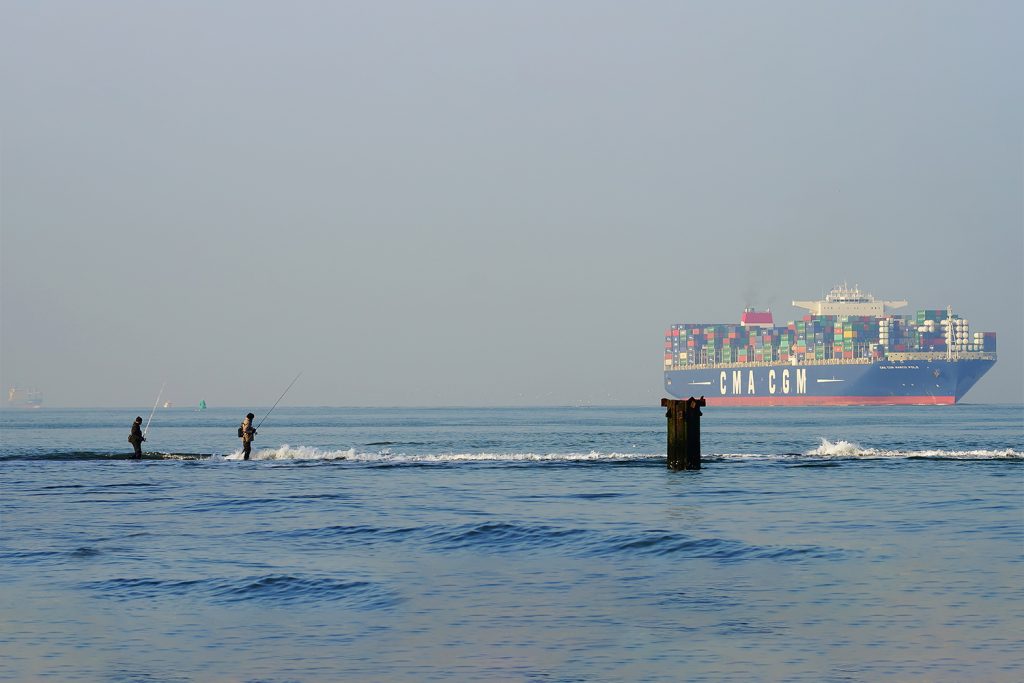Thank you very much for accepting this interview for PORTUS Portrait, focused on Rotterdam.
We would like to talk with you about the role that the Deltametropolis Association plays in the metropolitan territory of the delta as a platform to connect other stakeholders, to promote research and to reflect on future developments with a territorial vision that includes the Rotterdam harbor complex.
INTERVIEWER | Paolo DE MARTINO
Could you tell us about your role within Deltametropolis? What are the main challenges (and scales) that the port and city of Rotterdam, as well as the larger region, are facing at the moment and what kind of opportunities do you also see there?
INTERVIEWEE | Paul GERRETSEN, Director of Deltametropolis Association
At the Deltametropolis Association, we have this role of looking with an open agenda at the natural and cultural delta territory and how that interacts with the city network, the metropolitan dimension. We came into existence via the four big cities of the Netherlands and Rotterdam, being one of them, was very much involved in this development.
The first phase was to focus on the Randstad cities (Amsterdam, The Hague, Rotterdam, Utrecht) to have a platform to think about future developments. Later other stakeholders came in, so the idea of setting up an association was made to fit that agenda and to allow other stakeholders to enter. The so-called Mainports were the first to come in: the Port Authority and Schiphol Airport. This because they thought it was fundamental to look at the development of the city. However, our role today is quite limited because both the city of Rotterdam and the port authority are no longer members of our organization. We work together on all kinds of projects and in different ways but there is no direct relationship anymore.
We have developed some research on the role of the Rotterdam harbor complex in the wider setting which starts with the Euro Delta Metropole and includes Flanders (Belgium) and Northrhein Westphalia. In this collaboration the harbor plays a quite fundamental role. I think the most interesting project was one we did three or four years ago, which looked into the maritime cluster and its special implications for the wider region. It looked into the relationship between the development of the maritime cluster as an economic cluster, for which the Erasmus University developed some scenarios, and the implications this can have on space and society.
INTERVIEWER | Paolo DE MARTINO
What, do you think, will be the impact of port development (growth/shrinkage/repositioning?) on the cities and territories nearby? What kind of different scenarios do you imagine to improve environmental sustainability and to mitigate the impact that port industry has on the city in terms of environmental pollution?
INTERVIEWEE | Paul GERRETSEN, Director of Deltametropolis Association
I am sometimes a little bit puzzled by the scenarios because I come from a different perspective and we like to emphasize long-term thinking in our work. I think the Netherlands has forgotten about the quality they used to have in thinking about the long term. There was a real focus on the long term and the strategic steps that needed to be taken. And actually, the development of the port was very much part of that long-term perspective. It is how and why Rotterdam became the biggest port of the world.
This long-term perspective is quite challenging in the Netherlands at the moment, particularly when it concerns all of the major problems we can see coming out of climate change and the challenges that we have in terms of mitigating measures and living in a different way. I believe these aspects are really off the scale and not only in the relationship between port and city. This is an existential crisis that require actions.

However, many of the scenarios, particularly coming from the port itself, but also from people thinking about port development, describe a process of economic growth as if nothing is wrong. If you look at the forecasts for the amount of fossil fuel flows, for example, in the port of Rotterdam, these are not matching at all with any of our sustainable goals in the European context. There are big steps to be made and I am sure that on a theoretical level everybody agrees that these steps need to be taken, but in practice I think we are only just scratching the surface.
This has also to do with the fact that there are forces against change. In terms of its infrastructure for example, there are actors which are very powerful in terms of influencing decisions. The Port Authority is a key player in terms of infrastructure investments. They literally sit at the table of the Minister and there’s not many other organizations which have this direct influence. So, I am also a little bit puzzled by that because they could influence the debate and also make smart investments for the overall North Western European context.
So, I still think that there is no long-term strategic thinking whatsoever. In addition, I have to say that the public side such as the government, the municipalities, the region are also not able to react to this lack in a proper way.
INTERVIEWER | Paolo DE MARTINO
How does the Deltametropolis Association contribute to making the Port more attractive than others? And what elements do you think the Port of Rotterdam contributes to the City and the region to make them more competitive and sustainable than others?
INTERVIEWEE | Paul GERRETSEN, Director of Deltametropolis Association
We developed a study (Maritime Clusters) which I believe was very interesting in the way it suggests some alternatives. I thought it was an interesting approach in terms of finding positive ways in this relationship between the city and the port area.

Particularly the study tells the story of frictions related to the heavy industry and the city becoming more and more detached from the port economy. Of course, not all conflicts can be resolved in spatial terms but some of them can. We can think of spatial strategies that bring innovation at the intersection between city and port. We can think about spaces to be safeguarded for future innovative developments. We should avoid that low level uses take away the quality of these spaces of relation. So, I strongly believe that we can play a role spatially through speculative proposals to help the port preserve the spatial quality of the port city system at different scale levels.
INTERVIEWER | Paolo DE MARTINO
How important is it that the Port, City and the larger region have a shared vision and why?
INTERVIEWEE | Paul GERRETSEN, Director of Deltametropolis Association
Very important. We, as spatial planners don’t look at these territories separately rather as a whole. A shared vision is the only way to bring in common benefits and long term planning for the port, city and region.
From Deltametropool we work on the metropolitan regional scale as the focus point that includes a couple of cities and ports within the territory. This portrays our visioning and importance of shared vision and decision-making process. Our activities and programs rely on bringing these stakeholders together and providing an impartial platform to discuss their individual challenges and possible support. We are developing a research by design study with TU Delft and Centrum Ondergronds Bouwen (COB) which focuses on Merwe-Vierhavens area, an area in Amsterdam, a neigbourhood in Maastricht and three case studies in Flanders, one of which is in the harbour of Oostende. The study is looking at the relationship between the development which happens above the ground and what happens below the ground in terms of climate change and climate adaptation, but also in terms of all of the infrastructure that needs to be built underground. How can you manage this relation in the future?
Particularly if you look at it from the perspective of the employment, it would be wise to focus less on the role of the big multinationals and more on small and mid-size companies and their role in terms of innovation.
INTERVIEWER | Paolo DE MARTINO
70% of the port is still based on the fossil fuel industry. We really need a structural change in the way we life and behave. Port and city still “tell two different stories”, also because they belong to different planning logics. What do you think is needed to plan the port as an urban entity?
INTERVIEWEE | Paul GERRETSEN, Director of Deltametropolis Association
Half of the kids in Rotterdam have asthma, never mind that it used to be even worse, what kind of answer is that, this is unacceptable. So yes in terms of emissions, all kinds that is, and also in all forms and all along the “supply chain” we need a complete reset. That means taking the “living environment seriously, both in the harbour, the city, region and of course globally. If you’re still unable to come to terms to that idea, there cannot be a license to operate. We cannot keep going on this way.

INTERVIEWER | Paolo DE MARTINO
Is there anything else that you would like to share with us in light of the Port of Rotterdam’s leadership role globally, in relation to the port city territory and the work of Deltametropool? How do you see the port-city relation in Rotterdam developing in the future in a transnational/European context?
INTERVIEWEE | Paul GERRETSEN, Director of Deltametropolis Association
The relationship with knowledge and education institutes I think is very important, regional coordination is needed as well as working together. Another element, I think, to also better understand the level of the Euro Delta is to recognize the collaboration between Rotterdam and Antwerp. Basically, what you see there is that there is a further need of integration of the ports on both sides of the border. It will lead to the conclusion that ports need a territorial view on how this regional territory can be developed. Very similarly as it did with the integration of the ports of Gent and Terneuzen and Vlissingen, into North Sea Ports. So, can we challenge the port of Antwerp and the port of Rotterdam to come up with a strategy on the Euro Delta scale in terms of their collaboration, instead of seeing each other as competitors. And of course, the Amsterdam harbor is part of that thinking.
I would also hope for much more powerful public side which really addresses these big issues when it comes to climate change. Change needs central government action through collaboration with all other levels of actors. Finally, I think that if we could come up with new narratives, other ways of conceptualizing this port system, I think that would be beneficial. Perhaps we can still play a role in that.
Head Image | The Archipelago of Knowledge is a new spatial strategy for the city of Rotterdam, Netherlands, that reconsiders the relationship between port and city. (© Openfabric in collaboration with KartonKraft, Mauro Parravicini, Noha and Move Mobility).